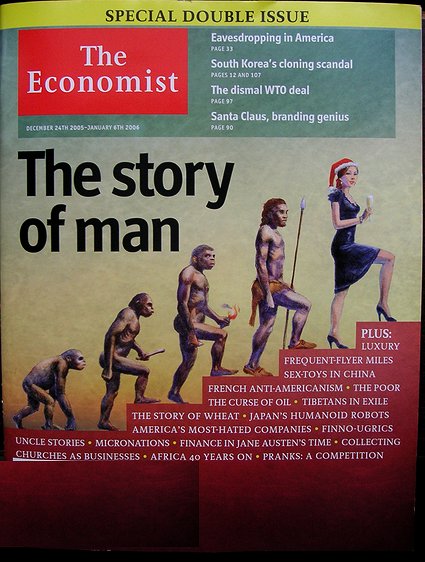(I know why you guys don't watch TV news, you have me and J.D. and Talysia and mosaix...dutifully posting the reports for your interests and amusement.
 )
)
BBC NEWS | Science/Nature | Butterfly shows evolution at work:
Scientists say they have seen one of the fastest evolutionary changes ever observed in a species of butterfly.
The tropical blue moon butterfly has developed a way of fighting back against parasitic bacteria.
Six years ago, males accounted for just 1% of the blue moon population on two islands in the South Pacific.
But by last year, the butterflies had evolved a gene to keep the bacteria in check and male numbers were up to about 40% of the population.
Scientists believe the comeback is due to "suppressor" genes that control the Wolbachia bacteria that is passed down from the mother and kills the male embryos before they hatch. "To my knowledge, this is the fastest evolutionary change that has ever been observed," said Sylvain Charlat, of University College London, UK, whose study appears in the journal Science.
......
"We're witnessing an evolutionary arms race between the parasite and the host. This strengthens the view that parasites can be major drivers in evolution," Mr Charlat said.
BBC NEWS | Science/Nature | Butterfly shows evolution at work:
Scientists say they have seen one of the fastest evolutionary changes ever observed in a species of butterfly.
The tropical blue moon butterfly has developed a way of fighting back against parasitic bacteria.
Six years ago, males accounted for just 1% of the blue moon population on two islands in the South Pacific.
But by last year, the butterflies had evolved a gene to keep the bacteria in check and male numbers were up to about 40% of the population.
Scientists believe the comeback is due to "suppressor" genes that control the Wolbachia bacteria that is passed down from the mother and kills the male embryos before they hatch. "To my knowledge, this is the fastest evolutionary change that has ever been observed," said Sylvain Charlat, of University College London, UK, whose study appears in the journal Science.
......
"We're witnessing an evolutionary arms race between the parasite and the host. This strengthens the view that parasites can be major drivers in evolution," Mr Charlat said.


